‘The decision to have a child was not in spite of my disability, it was because of it’
Parents who live with disability share their fears, challenges and triumphs.
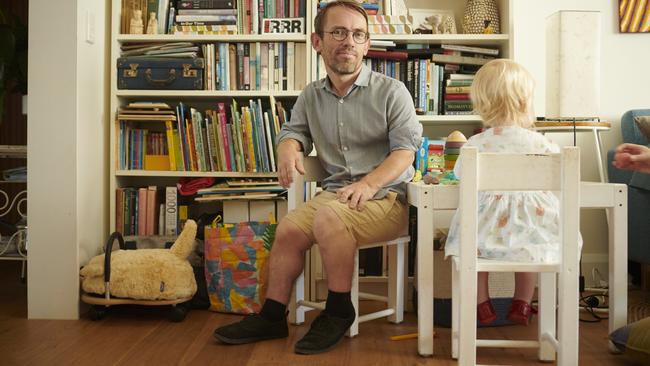
SAM DRUMMOND
It takes me six months to get to know my new neighbourhood. Not just the street names or where to get the best coffee, but each laneway, every shortcut, all the unmaintained bluestone paths. Which houses are home to hoarders, which businesses ignore “no junk mail” signs and who mows their lawns on a Wednesday. This is the life of a parent whose child will only fall asleep in the pram. Come rain or slight drizzle, if I spot a yawn, a rub of the eyes or the pull of an ear, I whisk Young Me into the pram. Then the race is on – will she drift off to sleep or will my hips or knees give out first?
Watching her fall asleep is one of the great honours of parenthood so far. She stares at me intently with her indigo eyes. Her eyelids shut once, twice, then again for a final time – and she’s asleep. That’s on a good day. The alternative is that her eyes stay wide with wonder as we pass trees, dogs, birds; these endless walks inevitably result in another sleepless night. I don’t mean for her – she will sleep like the proverbial baby she is. But my form of dwarfism means I will toss and turn from one sore hip to the other, trying to find the right angle for my swollen knee, stubbornly refusing painkillers because I’ve had worse.
Whether she falls asleep in the pram or not, there’s always one thing at the back of my mind – I have a 50 per cent chance of passing this disability of mine on to her.
Being a parent was never really on the cards. I hear this so often from other parents with a disability. Whether a disability is genetic, acquired or both, every disabled person gets subtle and not-so-subtle hints that they should not procreate. The message that I am somehow “lesser” because of my disability has been pounded into me for as long as I can remember. In kindergarten, the teacher marked our heights against the wall then ranked them from top to bottom. I was always last. In the Grade 1 playground, another student told me their parents had warned them not to go near me because they might “catch” my shortness. Despite a love of sport, I was often sidelined from high school PE. Other students were asked to push their physical limits while my limitations were fixed, defined by others.
And when it comes to dating and sex for people with dwarfism, the message is not just that tall is better, but that it is tall or nothing. Growing up, there was not a single media representation of a person like me as a healthy sexual being. Short-statured people have been forced to straddle competing stereotypes: either desexualised or fetishised. At one end, the child-like non-sexuality of the Oompa Loompas or the Seven Dwarfs; at the other, hypersexualised Mini-Me from Austin Powers. I have no doubt that these representations are at least in part responsible for the kind of life-shaping interactions that pulverise your confidence more than any schoolyard taunt. Like the drunk man at a music festival urinating on you “because you’re at the right height”. Or a crush telling you that you should be with “your own kind” instead of her. Through the way in which we’re portrayed, the messages society sends to a young person with a disability is clear: You are different, you should be sidelined; if you are to succeed, it’s not going to be with the rest of us.
If the messages don’t get through to you by the time you’re considering having kids, the “genetic counselling” offered by health practitioners will do the trick. Even the name is a giveaway: you go to a counsellor when you have a problem (say, drinking), not when everything is hunky dory.
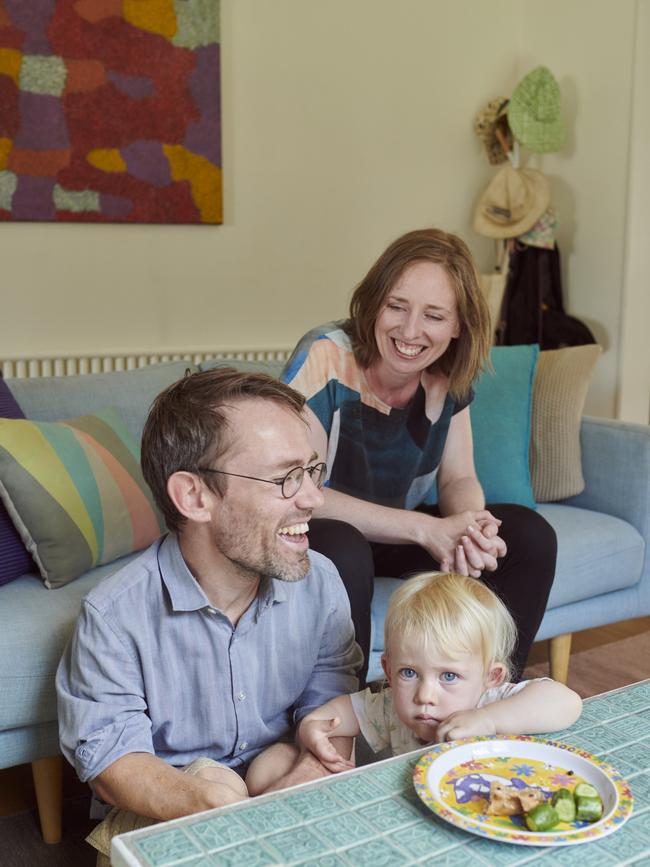
For reasons I cannot explain, my partner expressed so much interest in me early in our relationship, she wanted to accompany me to my regular specialist medical check-up. The doctor confirmed the maths to both of us without us even asking – if we had children, there would be a one in two chance that he would have a new patient. At that point in our lives, neither of us were interested in children. So it was to my relief that my partner smiled politely and declined an offer of genetic counselling.
We were happy simply discovering each other. I felt like the luckiest person in the world and didn’t want anything to change. I certainly didn’t want to do something as drastic as mention the possibility of children. Being a parent was never really on the cards. Until it was.
It was a walk up to a lighthouse in Penang on a long trip to Asia that made me re-evaluate my priorities. I had recently swum a marathon and had never been fitter. But the tropical heat soaked us with sweat on the ascent, and every step on the 227m descent to the beach jolted through my right knee like a spade hitting concrete. As my leg began to shake, my partner and I would embrace on each step and place our foreheads together, the way elephants do to show their love. She would then support my weight and lower me down to the next step. By the time we got to the bottom the damage had been done. The pain I endured in the months that followed shaped our trip. People with disabilities and chronic illness know this sort of pain well. It makes you re-evaluate basic principles. And if you get out the end of it, you never approach life the same way again.
I arrived back in Australia with crutches and a renewed sense of purpose – the cards I had been dealt had changed and it was time to take a risk. I decided that I should initiate The Talk. It turned out that we both thought the other didn’t want kids. Each of us had been silent in the face of unquestioned assumptions. What about the teasing? The discrimination at school and work? The surgeries? The pain? How would I go lifting a child into a car seat or onto a change table? What if they were able-bodied and could outrun me?
We cried. We realised all these questions had been bogged down in the underlying assumptions placed on us by society. We live in a world that values sympathy for people with disabilities and encourages us to donate to hospitals so they can cure disability. Meanwhile, people with disabilities are left behind, because those things that would make life liveable – a translator, a piece of software, a ramp – are not given priority.
For me, the decision to have a child was not in spite of my disability. In no small part, it was because of it.
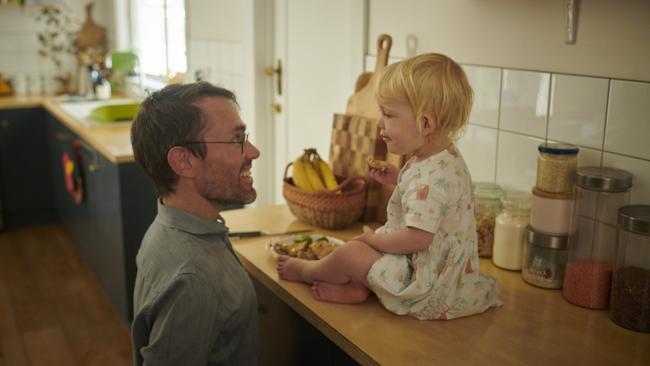
Our daughter arrived in a world brimming with possibility. When I saw her squidgy face, I saw a person who could achieve anything, go anywhere, be anyone. I felt joy, pride, love – and that strange sense of looking at your offspring and seeing yourself look back. But there was also an unexpected kind of grief, linked to my disability. You see, our parenthood journey has involved a state of purgatory. If Young Me has inherited my disability, she won’t start showing clear signs of it until she’s about 18 months old.
I was born within what doctors call “the normal range of height”, as was my daughter. Since becoming a father I have grieved the possibilities that will be lost either way if she is able-bodied or if she is disabled. Either way, I have learnt that there is grief in parenting a child with a disability. As I walk these endless backstreets, trying to get Young Me to sleep, I acknowledge that this grief is real. And as my knee buckles from the walking, I find that it’s not just the prejudice she will face if she has a disability that causes me grief, but also the physical pain that would await her. This is my moment of great doubt – can I have this grief and still be disability proud?
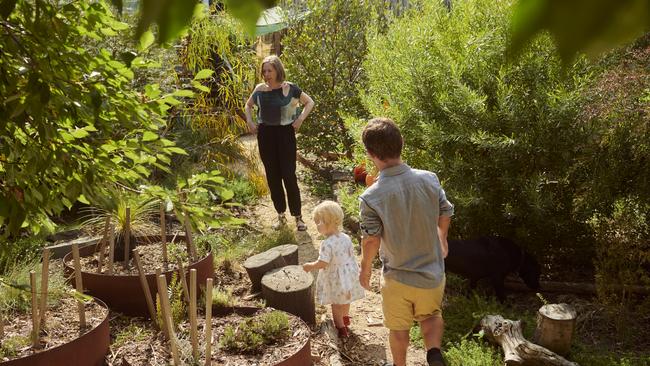
It is all I can think about as I push the pram into the driveway, pick her up and walk straight to her room. “I’ve had enough,” I call out to my partner, who is working from home in the next room. “Something has to give.” I put Young Me into the cot, look her straight in the eye and explain that we are about to learn a new way to go to sleep during the day. She cries. And cries. And cries. I pick her up and close my eyes, bowing my head towards hers. She quietens. To my surprise, I feel her forehead against mine, just like elephants do to show their love. And then it clicks. Before having a child, I thought that this journey was the ultimate act of disability pride. I was right, but for the wrong reasons. I didn’t achieve pride just by having a child. Pride is something I have learnt through the love of this incredible being.
At one year old, she has inherited just about everything – my hair, my eyes, my love of books, my habit of continuing to eat as long as food keeps appearing on my plate. We still do not have confirmation of whether she has inherited my disability. But if it comes, it will not change a thing between us. We will press our foreheads together like elephants and everything will be OK.
Sam Drummond is a lawyer and disability advocate. He lives in Melbourne with his partner Jo, daughter Gwendoline and dog Bessie.
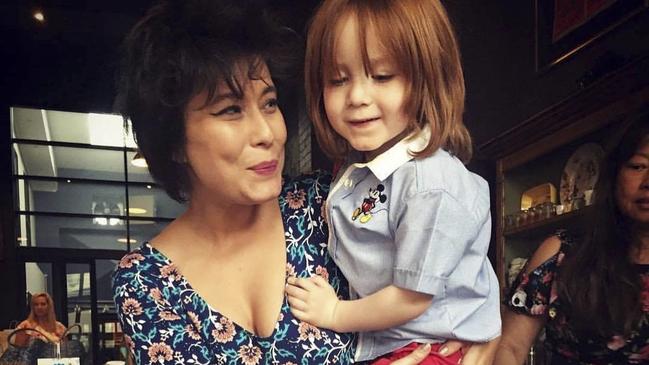
ELLY-MAY BARNES
Music has always been an integral part of my life. So has cerebral palsy, but for a long time I tried to ignore it. I refused to let it define me. Instead, I embraced and clung to music. I was born at 26 weeks, weighing only 750g. Just moments after birth I had a brain haemorrhage. During my first fragile months in the neonatal intensive care unit, my dad sang to me through the walls of the humidicrib, praying that I was going to make it through.
My early life was a series of braces, casts, operations, injections – and medication after medication to help ease some of the pain. During hospital stays I would always have my music playing. Bob Dylan, Neil Young and old Motown classics would blast through my hospital room on my portable CD player.
I’m very lucky to have been born into a large, loving family. I’m the youngest child of five, the baby, and my four older siblings always looked after me. My father is the famous Australian singer-songwriter Jimmy Barnes, so I grew up learning to sing with him. It’s still a way we mark every occasion. When I was growing up, my parents never called me disabled; they said, “Elly has a sore leg.” Often they were just really casual about it, sometimes protective too, but they never made me feel like it was a big deal. This was positive, because it meant I never felt self-conscious about it. They were always so accepting and supportive, and I really felt that growing up. I didn’t feel different to my other siblings, I felt included.
At school, when it came to sports carnival day, I decided to run in the race. When I say run, I didn’t really run – I had two casts on my legs at the time to stretch my calf muscles, so really I just walked slowly. I cried beforehand because I was so nervous people would laugh at me, but I was stubborn and wanted to be part of it, so I gave it a go. At the end of the race, I was awarded a trophy. I thought, that’s really weird. At the time I didn’t connect the dots. After the race we all went out and celebrated as a family, but it wasn’t until I was a teenager that Dad confessed he had bought the trophy and asked the teacher to give it to me.
This has been the case with everything in my life. My family have always encouraged me to give anything I want to do a try, even if it’s going to be difficult. When I was 25, I told my parents I was pregnant. They were surprised (as was I!) but were extremely supportive. Being pregnant was challenging; it took a huge toll on my mobility. It was especially hard on my hips and lower back. My heart rate was always high and the extra weight caused pressure on my legs. I was in a huge amount of pain but I didn’t want to take pain relief for fear of harming my baby. Throughout the pregnancy I was worried that my body wasn’t suitable for carrying a child.
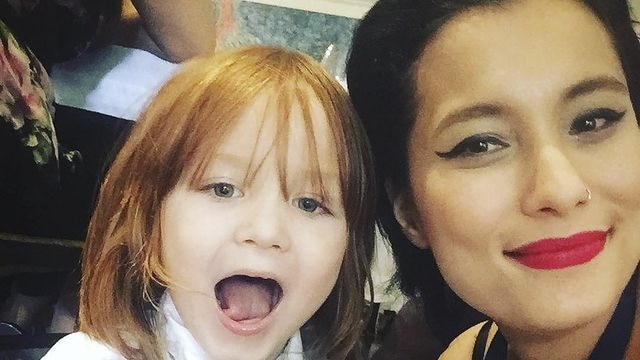
My beautiful baby boy was delivered by C-section a couple of weeks before he was due, as he was measuring large. He weighed 3.5kg when he was born. I named him Dylan, after Bob Dylan. I was instantly overwhelmed with the love I felt for him but the even more profound thing about Dylan’s arrival was the love it made me feel for myself. I have often felt like an outsider: not within my family, but at school or on tour I was always aware of my differences. Dylan’s birth changed this. He gave me purpose. If my body could carry and grow such a beautiful baby, maybe I was OK just the way I was.
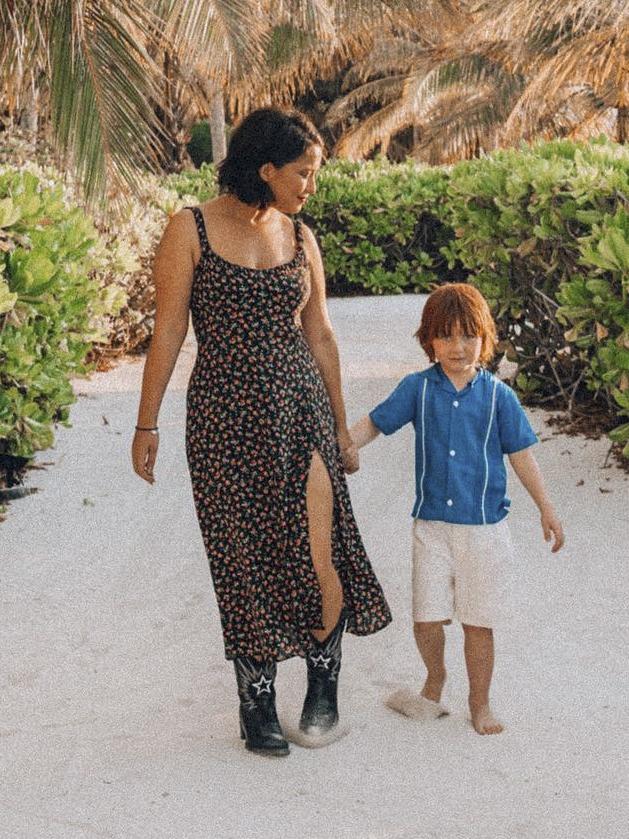
Dylan is seven now. He is a beautiful, kind and playful boy. I am immensely proud of who he is becoming. It’s definitely a village that helps me raise him, and I am immensely grateful. I see my parents every day. They are always checking in with me. They send me food or take Dylan for a walk with the dog. I always feel very connected to my community of friends and family.
Due to recent surgery, I am a wheelchair user at the moment. This has been quite an adjustment for me, and for Dylan as well. It’s been hard adjusting to how few places are designed with wheelchair access in mind. Recently, when I tried to watch Dylan’s soccer game, I was unable to get to the pitch. A muddy field and a wheelchair don’t mix.
The following week, I said to Dad that perhaps I shouldn’t go. He was the only family member planning to do so, so he said, “Don’t be silly, I’ll take you, I’ll push you through the field.” Dad was pushing so hard, trying with all his might to get me through, that I got flung out three times due to the front wheels getting stuck into the mud. I wanted to give up, but Dad is very determined. He doesn’t want me to miss out on anything – mud, hail or shine; he is unwavering.
When I saw the smile on Dylan’s face when I arrived on the sideline, it made all the trouble worth it. Situations like this make me feel frustrated at the barriers that people with disability like me face. I also get embarrassed about the inconvenience for other people, but that doesn’t mean I am ashamed of who I am. I’m proud of having a disability and what I’ve been through; now, instead of weakness, I see strength
(As told to Eliza Hull)
Elly-May Barnes sings in Jimmy Barnes’s band as well as performing her own cabaret shows.
Edited extract from We’ve Got This: Stories by Disabled Parents, edited by Eliza Hull (Black Inc, $32.99), out on Tuesday.

To join the conversation, please log in. Don't have an account? Register
Join the conversation, you are commenting as Logout